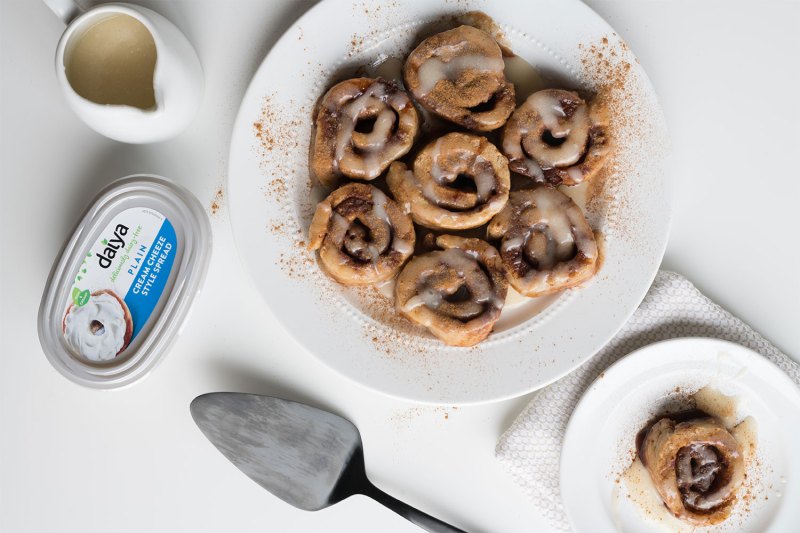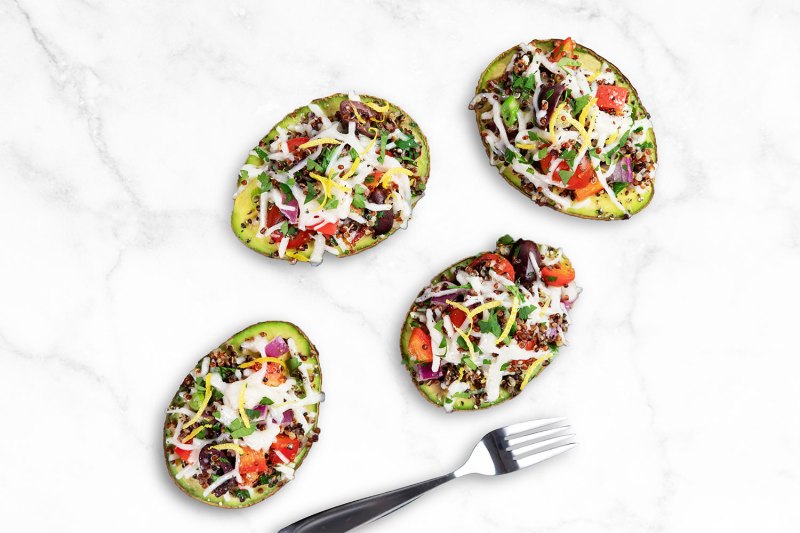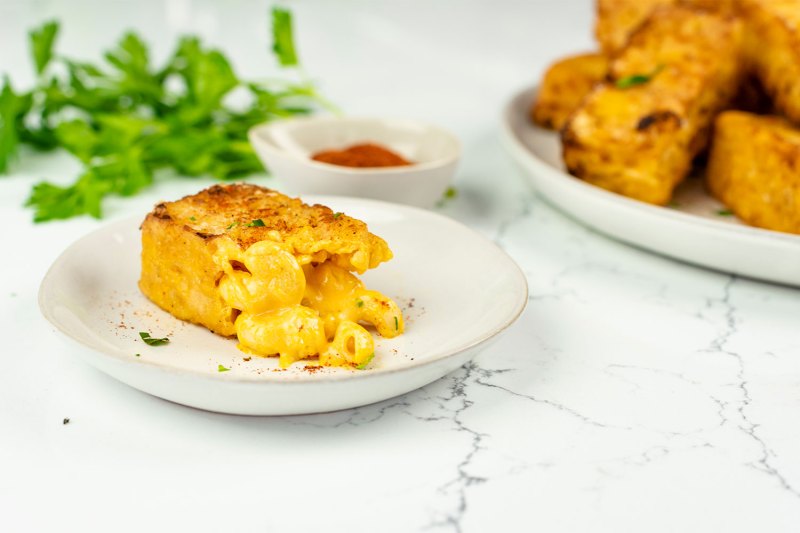Of all things holy, why would you ever eat vegan cheese when the real thing is oh so Gouda? Plus, what is vegan cheese even? Is it good for you? What does it taste like? Believe it or not, vegan cheese tastes great (like many vegan foods). With a dozen new and expanding brands putting out dairy-free options, the vegan cheese market is stocked with variations that taste like your favorite cheddar, mozzarella, queso, and cream cheese. Some taste … dare I say … better.
Here’s a quick lesson in what exactly vegan cheese is made of, the cool benefits from swapping, and perfect meal ideas to try making the switch. The Manual also asked the pioneer of plant-based cheese, Daiya, to weigh in and give us the slice.
So let’s cut to it: What the heck is vegan cheese made of?
Experts at Daiya say their vegan cheese (and most other brands) are made from natural plant-based ingredients. “Each ingredient is carefully chosen to replace dairy ingredients in order to provide that cheese-like flavor, melt, and stretch. This includes plant-based fats such as coconut oil, plant-based proteins such as chickpea, pea, and potato, and also clean label, allergen-free flour such as tapioca. Many of our products are fortified with calcium and B12 for added nutrition,” Daiya says.
Some other examples include Kite Hill which makes dairy-free cheese products made from an almond base and Treeline which is a cashew nut cheese (it’s wicked fancy and perfect for a cheese board).
So there you have it — plant-based alternative ingredients.

What makes vegan cheese vegan?
Vegan simply means there are NO animal derivatives or byproducts that went into making the product. This goes for all vegan food. Cheese by nature is an animal product however vegan cheese is a re-creation of that food experience with non-animal ingredients.
How do vegan and regular cheese compare nutritionally?
“Regular cheese is typically higher in fat and calories, while vegan cheeses are typically lower in fat and cholesterol,” says Daiya experts.
There is still protein in vegan cheese, usually derived from pea protein, chickpea protein, or potato protein. Daiya says these proteins are essential for a better taste and texture in vegan cheese. However, “vegans can’t count on vegan cheese as a protein source,” they add.

Does vegan cheese really taste like cheese?
Yes, a ton of vegan cheeses taste like the real thing. Especially cream cheeses from Miyokos, melted Daiya shreds (we are personally obsessed with these), Chao and Go Veggie sandwich singles — Go Veggie literally tastes like Kraft Singles and it’s amazing — and Siete’s Cashew Queso liquid cheese that would fool even the most traditionalist nacho connoisseur.
However, not all vegan cheeses taste like the real thing. Experiment with different brands, styles, and melting. But rest assured, Today you can find every type of “cheese” in its vegan form, from sandwich singles to string sticks, faux Parmesan powder, liquid gold for vegan mac and cheese, shreds, blocks, balls, and dips.
Daiya makes its vegan cheese taste like the real thing by using natural flavors derived from plant-based sources along with herbs and spices to create signature cheesy flavors. They and other brands also use yeast extracts which are “naturally rich in umami flavor to enhance taste profiles,” Daiya says.
What flavors can I get?
All of them. Every dreamable cheese has its vegan alternative. That includes cheddar, mozzarella, pepper jack, smoked Gouda, provolone, Swiss, brie, jalapeño havarti, Monterey jack, plain cream cheese, strawberry cream cheese, chive & onion, and garden vegetable.
Can you only buy vegan cheese at health stores?
No, sir. With so many vegan cheese brands and options available you can go to the local grocery store and find a medley of options. Check in a couple places including the standard cheese aisle, and the dedicated vegan fridge often near the milks or produce.
Some normal stores that carry vegan cheese are Kroger, Walmart, Target, Albertsons-Safeway, Publix, Whole Foods, and Sprouts, plus most natural grocers and health food stores.

Are there benefits of switching to vegan cheese?
Our expert at Daiya says, “Regular cheese is typically higher in fat and calories, while vegan cheeses are typically lower in fat and cholesterol than regular cheese.” So if you’re trying to cut excess fats or want to eat fewer animal products, vegan cheese is a godsend.
That being said, just because the word “vegan” is in front of it doesn’t mean it’s a miracle health food. Vegan cheese should be eaten alongside other nutrients.
Another benefit of eating vegan cheese over regular is that it can lessen your environmental footprint. “You can feel good about reducing your impact on the environment and animal welfare through reduction in dairy which is a mental health benefit for some,” Daiya says.
Ok, let’s experiment! What are the best dishes to try vegan cheese in?
Well, what’s your favorite cheese meal? Recreate that. You can make a vegan cheese pizza, quesadilla, sprinkle a bit over a casserole, add to a sandwich, or dig into potato chips & dip.
If you’re super sketched, start with a bagel and vegan cream cheese. You will be floored by how imperceptible the difference in taste and texture is.
Last but not least, what is cheese’s favorite music?
R’n brie. (Sorry not sorry.)


